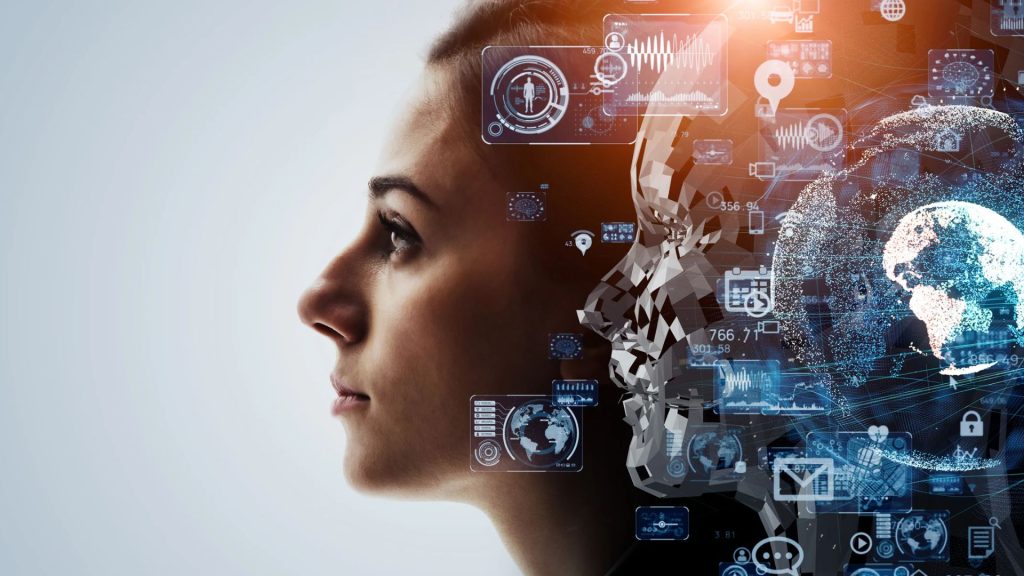Artificial Intelligence (AI) is revolutionizing our lives in unprecedented ways. One of its most remarkable manifestations is OpenAI’s language model, ChatGPT. This large-scale AI model has the potential to reshape our professional landscape, transforming how we perceive and engage with work. However, the dawn of AI has also instilled fears of job displacement, fuelling anxieties about a future in which machines supersede human labor.
As we delve deeper into AI, it becomes evident that these fears, while not entirely unfounded, often overshadow the transformative potential of technologies like ChatGPT. Instead of replacing humans, these technologies redefine roles and create new opportunities. In essence, we’re not facing a loss of jobs but a shift-like work that might prove beneficial in the long run.

Unveiling the Potential of ChatGPT
ChatGPT is a product of OpenAI’s GPT models, trained to understand and generate human-like text. Its versatility makes it valuable across multiple sectors, from drafting emails and writing code to customer service and tutoring. But the impact of ChatGPT is wider than streamlining processes and automating tasks. It’s reshaping the professional landscape, unlocking new capabilities, and fundamentally changing our work.
For instance, let’s take Kuki Chatbot, a product powered by ChatGPT. Deployed in the healthcare sector, Kuki answers medical queries, augmenting the services of healthcare providers and making them more efficient. By reducing the time spent by healthcare providers on routine inquiries, Kuki allows these professionals to allocate more resources to direct patient care.
The versatility of ChatGPT means it can be utilized in numerous industries, from healthcare and education to marketing and customer service. It is reshaping these sectors by automating routine tasks, providing insightful data analysis, and enhancing customer engagement, among other capabilities.
The Opportunities Born from ChatGPT
The integration of ChatGPT into various sectors isn’t just about automation – it’s about transformation and the birth of new opportunities. By taking over repetitive tasks, ChatGPT frees professionals to focus on the complex, strategic aspects of their work. This shift doesn’t equate to job elimination. Instead, it enhances current roles and opens doors for new ones previously inconceivable.
Take content marketing as an example. With ChatGPT’s ability to generate SEO-optimized content or draft engaging social media posts, the role of content marketers is evolving. Instead of spending hours writing and editing, these professionals can use AI-generated drafts as a starting point, dedicating more time to strategic planning, creative brainstorming, and improving customer engagement.
ChatGPT is becoming a valuable tool, providing a springboard for creative thinking and strategic planning. Automating routine tasks frees professionals to focus on their roles’ strategic and creative aspects, leading to job preservation, job evolution, and the birth of new career paths.
Addressing Fears and Misconceptions: Job Transformation, Not Job Loss
The fear of job loss due to AI is a prevalent concern. Still, it often overshadows a critical aspect of AI’s impact – job transformation. Technologies like ChatGPT are tools designed to augment human capabilities, not replace them. They are changing the nature of work, making specific tasks redundant while creating opportunities for new, more complex roles.
Consider the role of InstructGPT, another product from OpenAI, in education. InstructGPT assists users in learning new topics by providing detailed, easy-to-understand explanations. This AI has not replaced educators but has amplified their abilities, allowing them to personalize learning, adapt teaching methods to individual needs, and devote more time to fostering critical thinking skills.
AI, particularly models like ChatGPT, is catalyzing a shift from manual, routine tasks to more strategic, analytical, and creative roles. This transition can be viewed not as a threat but as an opportunity to redefine our professional identities and work in more fulfilling, value-added roles.
“The power of AI is in augmentation, not replacement. It’s about enhancing human capabilities, not making them obsolete.”
Fei-Fei Li, Co-Director of the Stanford Institute for Human-Centered AI.
Conclusion
Integrating AI models like ChatGPT into our professional landscape is not about job displacement but rather job evolution. While the rise of AI has stoked fears of job losses, it is crucial to understand that these fears often mask AI systems’ immense potential and opportunities. Here are the key takeaways:
- Job Transformation, Not Job Loss: AI, specifically ChatGPT, is changing the nature of work, eliminating manual, routine tasks and creating opportunities for more strategic, analytical, and creative roles.
- New Opportunities: Automating routine tasks allows professionals to focus on their work’s complex, strategic aspects, leading to job evolution and unique career paths.
- Amplification of Human Capabilities: AI models like ChatGPT are tools designed to augment human abilities, not replace them. They free up time and resources, allowing individuals and companies to focus on what matters most – creative thinking, strategic planning, and value addition.
As the founder of Adsvisory, I’ve seen first-hand how AI can revolutionize industries and create new possibilities. We use AI to enhance marketing strategies, improve customer experiences, and drive business growth. But beyond these practical benefits, AI, especially models like ChatGPT, are opening new avenues of opportunity and driving a transformative shift in our work.
We must remember that we are not passive recipients of these changes but active contributors to this transformative journey. Our perspective, openness to adapt, and eagerness to learn will determine how we navigate this digital transformation era. In this rapidly evolving landscape, we at Adsvisory believe that the future of work is not a zero-sum game between humans and AI but a cooperative and dynamic interplay that amplifies human potential and fosters innovation and growth. Let’s embrace the transformative power of AI, reshape our professional identities, and create a future where humans and AI work in synergy to achieve extraordinary outcomes.



